Cargando...
Recursos educativos
-
Nivel educativo
-
Competencias
-
Tipología
-
Idioma
-
Tipo de medio
-
Tipo de actividad
-
Destinatarios
-
Tipo de audiencia
-
Creador
-
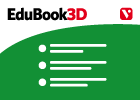
Industrialisation and liberalism
EduBook Organización
- 14574 visitas
Contemporary Times began with the French Revolution in 1789 and continue until today. At the end of the 18th century, the new ideas of the Enlightenment led to political liberalism. Liberals supported…
-

Estructura de la materia
EduBook Organización
- 11180 visitas
Aunque el número de elementos químicos es pequeño, la variedad de compuestos que se puede formar con ellos es enorme. Se conocen millones de compuestos y cada día se descubren o sintetizan más. El…
-
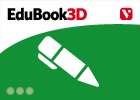
Answer. The monarchy and the feudal nobility
EduBook Organización
- 10712 visitas
Remember what you have studied in this section and answer the questions: What position did the monarch have in feudal society? What was the basis of his authority? What powers did the king have? What…
-
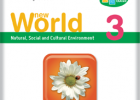
New World 3. Natural, Social and Cultural Environment
EduBook Organización
- 1 lo usan
- 10074 visitas
D. Living things 1. Human beings 2. Looking after my body 3. The five senses 4. Animals 5. Plants G. Glossary C. Chants 6. Water 7. Landscapes 8. Maps 9. Villages, towns and cities 10. Living in society…
-
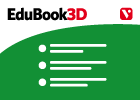
The organisation of urban areas
EduBook Organización
- 8266 visitas
Today, globalisation determines how a territory is organised, from both a cultural and a socio-economic perspective. Urbanisation, therefore, is no longer just about large concentrations of people, but…
-
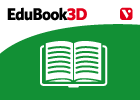
Before you start - Islam and Al-Andalus
EduBook Organización
- 4 lo usan
- 6351 visitas
Didactic objectives Describe the main characteristics of Islam and its influence in the organisation of Islamic societies. Learn the holy places of Islam and their cultural significance. Explain the…
-

Self-evaluation 1 - Prehistory
EduBook Organización
- 1 lo usan
- 6674 visitas
Complete the text with the missing words: The historical period before the introduction of writing into human society is known as ; it is divided into three ages: the Age, the Neolithic Age and the Age.…
-

Check. The Germanic kingdoms
EduBook Organización
- 6635 visitas
Review what you have studied and answer the questions: What type of government did the Germanic peoples have? What elements of Roman organisation did they maintain? How did life change after the fall of…
-
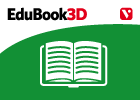
The evolution of human societies - Human Societies
EduBook Organización
- 5911 visitas
Human societies have changed and evolved throughout history. Today, different societies around the world have very different levels of development. A society's level of development depends on…
-
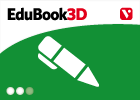
Check. The industrialisation of European societies
EduBook Organización
- 1 lo usan
- 5680 visitas
Remember what you have studied in this unit and answer the questions: What is meant by the Industrial Revolution? What changes did it cause in agriculture and demography? Explain what innovations led to…
Te estamos redirigiendo a la ficha del libro...












